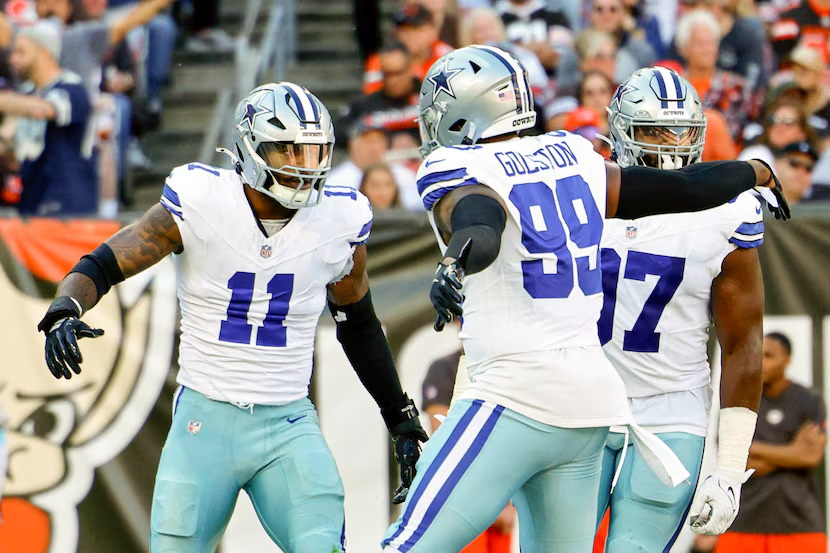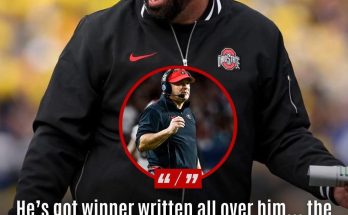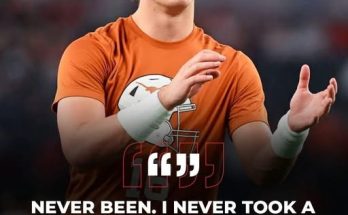The experience of being a former Dallas Cowboys player is one that comes with both legacy and a unique set of challenges, one of which is the constant attention and public interest that follows these athletes long after their playing careers have ended. One aspect of this ongoing attention is the group tours and appearances that many former players are often invited to join. While these events can be lucrative, high-profile, and a way to keep a connection with the team and its fans, they can also be a significant source of distraction. For these athletes, group tours are not just about celebrating the past, but also about balancing their personal lives and professional commitments in the context of their past as Dallas Cowboys players.
The Historical Significance of the Dallas Cowboys
The Dallas Cowboys are one of the most successful and iconic franchises in NFL history, often referred to as “America’s Team.” Established in 1960, the team quickly became one of the most storied in football, with a history of success that includes multiple Super Bowl appearances and championships. The franchise’s legacy is one that has attracted fans from all over the world, not just for the quality of the team, but also for the personalities that have played for the Cowboys.
For players, especially those who were part of successful eras, there’s a certain weight to being a part of the Cowboys legacy. Being a member of such a prestigious team can open doors to opportunities post-retirement, including endorsements, media appearances, and most notably, group tours. These tours often involve public events, autograph signings, and appearances that allow former players to engage with fans and maintain a presence within the Cowboys community. However, while these opportunities might seem like the ideal way to remain in the limelight and financially stable, they come with their own set of distractions.
The Distraction of Public Appearances
One of the primary distractions former Cowboys players face when it comes to group tours is the sheer volume of appearances that are expected of them. These events are often scheduled well in advance, with some players agreeing to take part in multiple tours or events in a given year. This can lead to a grueling travel schedule, with players flying in and out of different cities, staying in hotels, and spending long hours at events, all while being away from their families and the personal time they may crave.
For players who are more introverted or who prefer to live a more private life post-retirement, the constant need for public appearances can be overwhelming. The Cowboys’ large fan base means that every event can be packed with people, creating a constant wave of attention that some players find hard to manage. For some, the desire to step away from the limelight and enjoy the fruits of their careers can conflict with the pressure to remain visible as part of the Cowboys’ brand.
Even for those who enjoy interacting with fans and embracing the spotlight, there are times when the intensity of the group tours can detract from other important aspects of life. Balancing these public obligations with personal goals and commitments is often difficult. The distraction is not just physical but mental and emotional, as players are constantly reminded of their past identity as Cowboys players, often leading to a sense of being trapped in a role they can’t fully escape.
The Emotional Toll of Re-living the Past
For former Cowboys players, the emotional toll of re-living their playing days over and over again can also be a significant distraction. Every group tour or public appearance is an opportunity to recount the glory of past victories, discuss memorable games, and celebrate career milestones. While many players may cherish these moments, others may find that constant discussion of their former career brings back old emotions, both positive and negative.
For example, former players who experienced difficult times, whether through injuries, losses, or personal struggles during their careers, may find these discussions to be reminders of challenging periods in their lives. The constant repetition of these stories can sometimes prevent former players from fully moving on from the past, as they may feel trapped in a cycle of nostalgia that doesn’t allow for growth beyond their football career.
The emotional burden can also affect relationships. While group tours can be a way to connect with fans and remain relevant in the sports world, they can also lead to neglecting personal relationships. Time spent on tours could have otherwise been spent with family, friends, or pursuing new professional interests outside of football. This sense of being tethered to the past can be draining for players who want to focus on other aspects of their identity beyond their time as Cowboys.
The Financial Incentive vs. the Personal Cost
Another factor that plays into the distraction caused by group tours is the financial incentive. For many former players, the money earned from participating in these tours can be a significant source of income after their playing careers have ended. The Dallas Cowboys brand remains a valuable asset, and players are often compensated handsomely for their time. However, the financial reward must be weighed against the personal cost.
While the compensation is often substantial, the time commitment can be overwhelming, particularly for former players who have already achieved financial security. The temptation to take on more group tours or appearances for the sake of additional income can distract from the real issue: whether continuing to participate in these events aligns with their personal goals or quality of life. For some, the financial windfall isn’t worth the toll it takes on their time, energy, and personal fulfillment.
Furthermore, some players may feel pressured to continue participating in these events due to the expectation of their fanbase or team. The Dallas Cowboys’ community is incredibly passionate, and players may feel a sense of duty to support the team even after their playing days are over. This loyalty can drive players to accept more invitations than they may otherwise want, all in the name of maintaining a connection with the fanbase and helping to promote the team’s legacy.
The Impact on Family Life
One of the most significant distractions posed by group tours for former Dallas Cowboys players is the effect on their family life. Many players retire from the NFL in their 30s, and their personal lives are still in development. They may have young children, spouses, or aging parents who need attention and support. When these former players are constantly on the road for tours, they risk missing out on important milestones, family gatherings, and personal time that are crucial for maintaining strong relationships.
The disruption to family life is not just about the absence itself, but the emotional toll it can take on those left behind. A former player might return from a tour to find that the family dynamics have shifted, or that relationships have been strained due to the constant travel and time away. The added stress of balancing family life with public appearances can create feelings of guilt, frustration, and isolation.
For some players, the desire to step away from football completely after retirement means distancing themselves from the Cowboys and their public obligations. However, this can create tension, as there is often an expectation from fans, media, and even the organization to stay involved. The constant tug-of-war between family commitments and public appearances is a reality for many retired players, and it’s a distraction that is difficult to manage.
The Pressure to Maintain a Public Image
Finally, former Dallas Cowboys players face the constant pressure of maintaining a public image, particularly when participating in group tours. The media and fans often view these athletes as celebrities, and the expectation is that they will remain charismatic, positive, and engaging during public events. This pressure can create a distraction for players who may not feel like putting on a show, especially if they are dealing with personal issues or simply want to enjoy a low-key lifestyle.
Being in the public eye comes with its own set of challenges. Former Cowboys players are often expected to maintain a certain level of perfection and professionalism, which can create a feeling of being on display at all times. Whether it’s a group tour for charity, an autograph session, or a reunion event, these athletes are often scrutinized for their actions, words, and appearance. The constant pressure to live up to fan expectations can be overwhelming, and the fear of saying or doing something that could damage their reputation adds another layer of distraction.


